1. “Top Dog”

Everyone wants to be the top dog, but the phrase’s roots are rougher than you’d think. It dates back to actual dogfights where the dominant or victorious dog was the one on top. Over time, it came to mean anyone in the lead position, whether in business, sports, or even a neighborhood rivalry. These days, it’s less about scrapping and more about success. Still, it carries the edge of having fought your way there.
2. “It’s Raining Cats and Dogs”
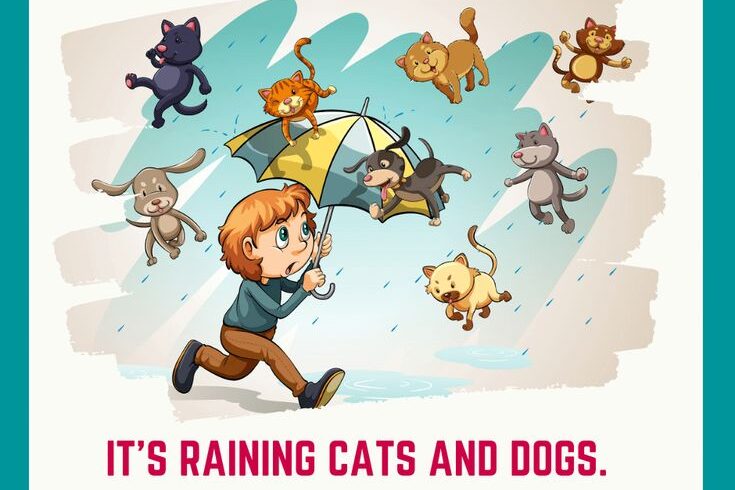
The phrase “raining cats and dogs” has several colorful origin theories, none confirmed but all vivid. One traces back to 17th-century England, where heavy rains would flood filthy streets and carry along dead animals—especially stray cats and dogs—creating a disturbing but memorable image. Another theory suggests that animals often took shelter in the thatched roofs of homes, and during violent storms, some may have slipped off the slick beams and fallen, giving the impression of pets quite literally dropping from above. Literary references, like those from Jonathan Swift, helped popularize the expression, which endures today as a dramatic way to describe a serious downpour.
3. “Who Let the Cat Out of the Bag?”
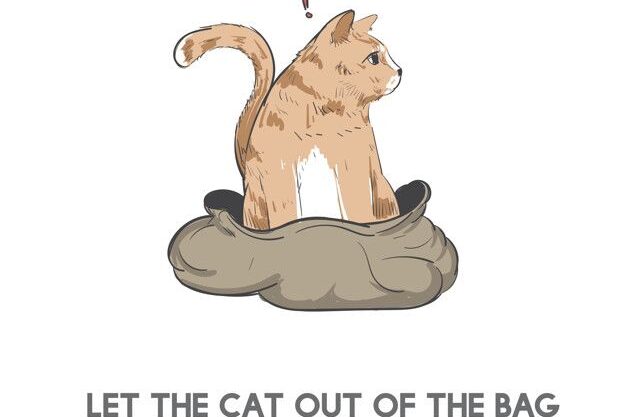
We’ve all let something slip, right? This odd phrase likely comes from market trickery in medieval Europe. Unsuspecting buyers would pay for a piglet, often sold in a sack or “poke.” But when they got home and opened the bag, surprise, it was a useless cat. Once the “cat” was out, the scam was revealed. It’s a cautionary tale in phrase form, warning us that secrets or scams don’t stay hidden forever. So, when you let the cat out, just know you’re carrying a bit of shady marketplace history.
4. “The Lion’s Share”
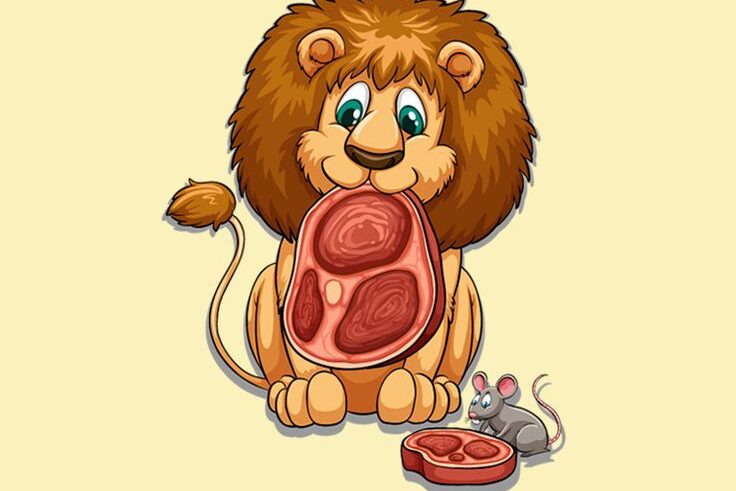
This one’s rooted in ancient storytelling. In one of Aesop’s fables, a lion teams up with other animals for a hunt. But when it’s time to divide the meat, the lion uses strength and logic to take all of it, proving the phrase “lion’s share” isn’t just about taking most, but sometimes taking everything. Over time, it came to mean the biggest portion, even if the method isn’t quite fair. It’s a phrase that reminds us how power and persuasion often write the rules.
5. “On a Wild Goose Chase”
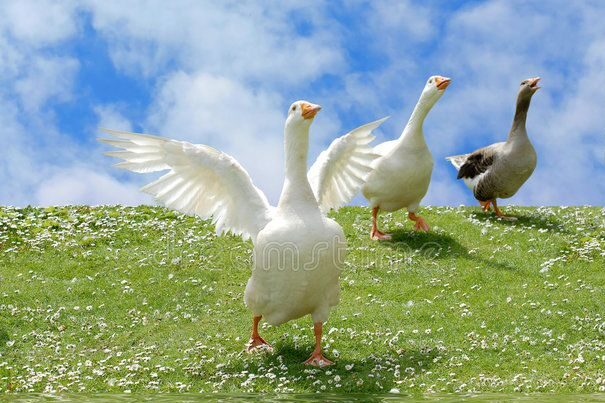
This one’s more playful than it sounds. Back in the day, it described a type of horse race where the lead rider zigzagged like a flying goose, and the others had to follow. Shakespeare used the term in Romeo and Juliet to describe a hopeless or erratic pursuit. So when someone sends you on a wild goose chase, they’re leading you on a twisting, probably pointless path. At least you’re in good company. Romeo didn’t have much luck with directions either.
6. “Hold Your Horses”
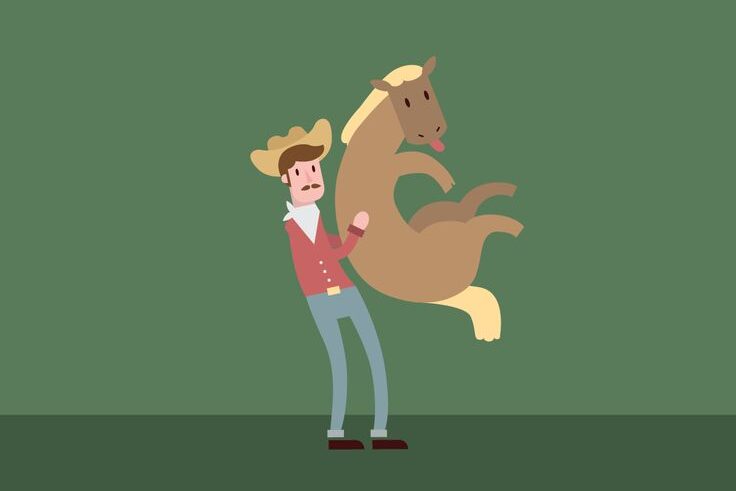
This phrase goes back to when carriages were the main way to get around. If someone rushed to move, they had to be told, literally, to hold their horses. It’s also heard in military settings where soldiers were warned not to charge too soon. Even today, it’s a patient person’s go-to phrase when everyone else is in a rush. So if you’re feeling hurried, a calm “hold your horses” might be just what’s needed to slow things down.
7. “Straight from the Horse’s Mouth”
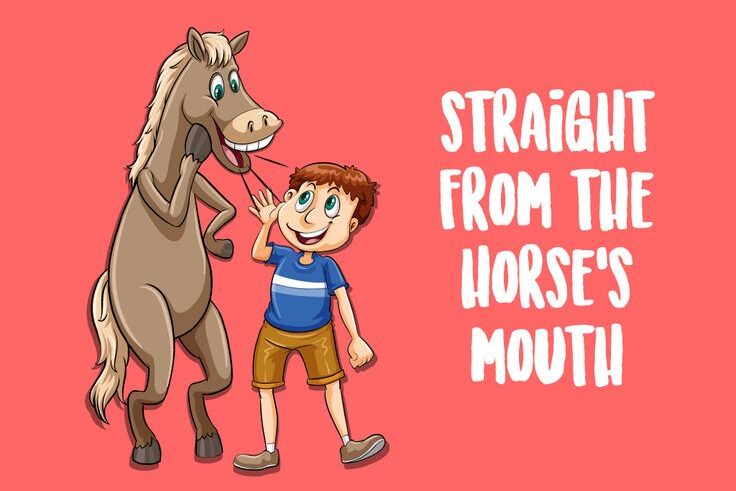
When you want the most reliable info, you go straight to the source. This phrase comes from horse buyers inspecting a horse’s teeth to judge its age and health, arguably the most honest part of the deal. If the seller said one thing but the teeth said another, smart buyers knew whom to believe. It’s one of those phrases that reminds us to value firsthand insight over gossip. Still good advice, whether you’re buying a horse or just settling an office rumor.
8. “The Cat Got Your Tongue?”
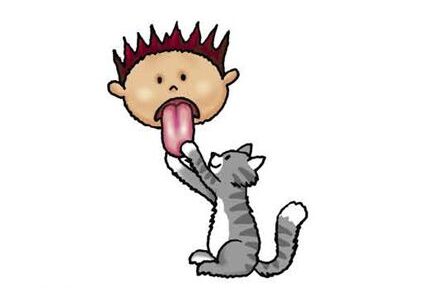
This one shows up when someone goes suddenly silent, but its origins are a bit more intense. Some believe it traces back to the “cat-o’-nine-tails,” a brutal whip used in naval punishment. Others suggest it’s about fear or shame making someone mute. Whatever the root, it’s a vivid image, like a cat snatching your words away. It’s cheeky and slightly accusatory, often said when the silence is louder than any conversation.
9. “Pig in a Poke”
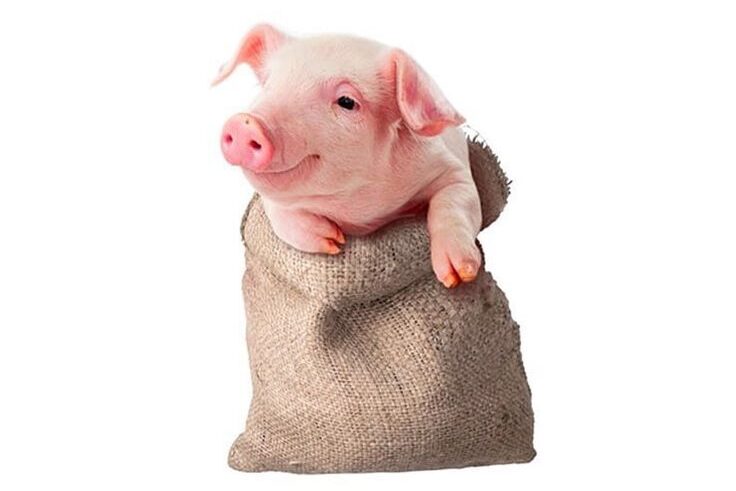
This is another buyer beware story. A “poke” is just an old word for a sack, and in medieval markets, if you bought one without checking inside, you might go home with a scrawny cat instead of a pig. It’s a cousin to “let the cat out of the bag,” but this one warns us not to make blind purchases. It’s still relevant today. Whether it’s an online deal or a rushed decision, always check the “poke.”
10. “Eager Beaver”
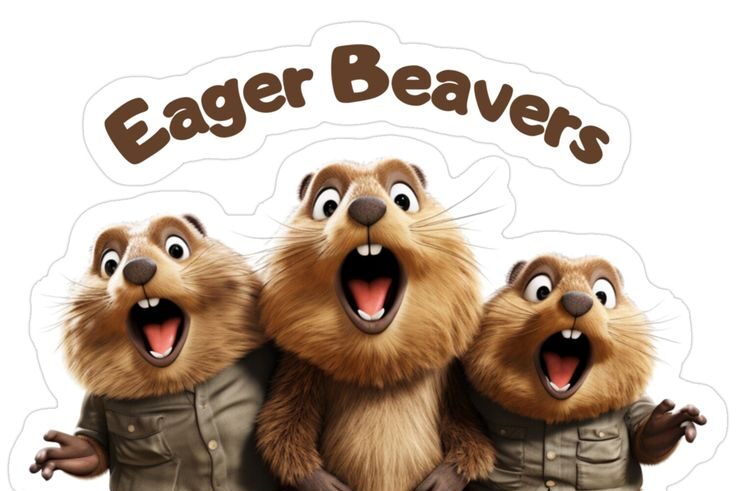
You probably know someone who’s always the first to volunteer, bright-eyed and ready to go. Beavers are famously hard workers, known for tirelessly building dams and lodges. The phrase came to describe anyone who’s overly enthusiastic, sometimes to a fault. It’s both a compliment and a gentle nudge, depending on the tone. If you’re the eager beaver in your group, just know you’re channeling some seriously industrious rodent energy.
11. “Don’t Chicken Out”
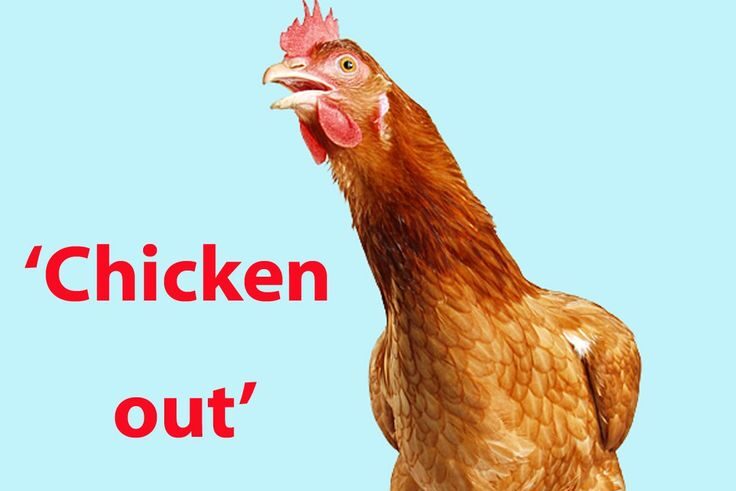
We’ve all backed out of something scary or overwhelming. “Chicken out” draws from a daredevil game where two drivers race toward each other. Whoever swerves first is the “chicken.” The insult stings, but the phrase has stuck as a light-hearted jab. It’s not just about fear. It’s about those moments when risk feels too real. And hey, sometimes chickening out just means you chose wisdom over wreckage.
12. “Monkey Business”
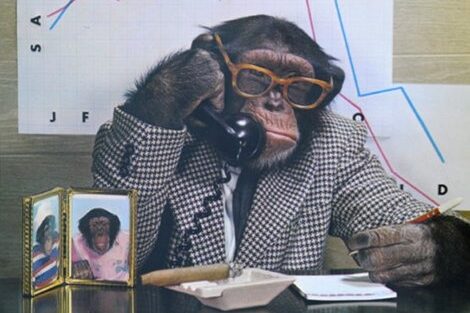
This one’s for all the playful mischief makers. Monkeys have long been symbols of trickery and chaos, especially in literature and theater. So “monkey business” came to mean any silly, sneaky, or downright mischievous behavior. It’s light and fun, unless you’re the boss walking into a prank war at work. Whether it’s kids in the back seat or coworkers on a sugar high, monkey business is never too far away.
13. “Ants in Your Pants”

If you’ve ever had trouble sitting still, this one hits home. The image is obvious, ants crawling where they shouldn’t, causing a jittery reaction. It’s used mostly for kids, but adults aren’t immune either. Whether it’s excitement, nerves, or too much coffee, we all get the fidgets. It’s a playful way of saying someone’s got energy to burn, often with a smile or a laugh attached.
14. “White Elephant”
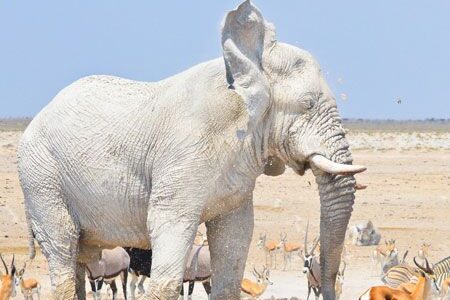
Getting a gift you didn’t ask for and can’t afford to keep might just be a white elephant. In Southeast Asia, rare albino elephants were considered sacred and couldn’t be used for labor. Gifting one was both an honor and a burden, as caring for it was expensive. Kings supposedly gave them to nobles they wanted to ruin, with kindness hiding strategy. Today, it’s that unwanted present at the holiday gift swap. Sometimes, the best “gift” is the one you didn’t get.
15. “Busy as a Bee”
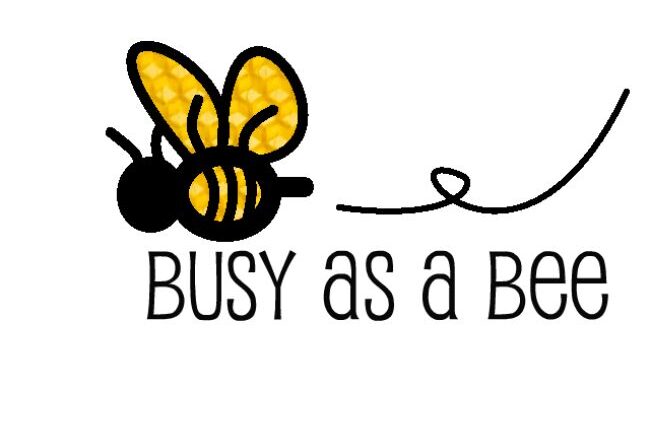
We’re wrapping up with a phrase that’s pure admiration. Bees are nature’s non-stop workers, pollinating, building, organizing. Shakespeare even used them as a symbol of diligent community. Calling someone “busy as a bee” celebrates their focus and hard work, usually with a little amazement. It’s a positive note to end on, reminding us that while all these animal phrases have wild roots, they still speak to real human habits. From buzz to hustle, we’re not so different after all.
This story 16 Animal Phrases We All Say but Few Know Where They Came From was first published on Daily FETCH


